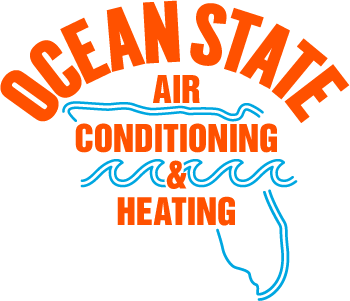High humidity is a given throughout much of the year in Florida. Fortunately, however, when it comes to humidity in your Neptune Beach home, you at least have some control. At this time of the year in our region, temperatures can be much better than other areas to our south. However, there will still be occasional days when the heat and humidity return. You can easily tell when excess moisture is a problem in your home. There are several steps you can take to control that indoor humidity, and restore indoor comfort.
Uncomfortable Indoor Air
When the air is full of moisture it can make your house feel stuffy and stifling. Apart from affecting comfort, this can make breathing difficult, and can present problems for persons with respiratory problems.
Your air conditioner can help to restore more comfortable temperatures, and help you to manage indoor humidity. When temperatures outdoors are more comfortable, it is a good idea to open windows to let in much-needed fresh air. Equipment such as dehumidifiers can help you to manage indoor humidity. Carrier’s Performance™ Whole-Home Dehumidifier is an affordable system that makes a huge difference in indoor air quality. You can choose a smaller model to treat one room, or opt for whole-house benefits. Effectively using your dehumidifier makes so much difference in your indoor air that you can increase the settings on your thermostat and save money.
Window Condensation
When you see condensation on your windows, it’s a sign of high humidity. There are several problems that can result from window condensation. It is recommended that you wipe the windows dry when condensation appears. If you leave the water to dry on its own, mold can eventually develop. This mold presents several problems. It is bad for your health and makes the window unsightly. It can also damage the window’s frame. The water too can cause your window frame to rot.
Bathrooms and kitchens can contribute to the humidity in your home. Run exhaust fans when using hot water or when cooking. As much as possible, try to reduce the amount of time spent in these activities to reduce the amount of humidity generated.
Mold Growth
Mold can develop very quickly, and mold spores can spread throughout your home if you don’t take action in a timely manner. You can find mold growing on various surfaces in your home. It is difficult to get rid of mold spores. You can manage their growth and spread by managing indoor humidity.
Mold can be a problem any time of the year, and is a major respiratory irritant and allergen for many people. Inhaling or touching mold can lead to allergic reactions such as a runny nose, sneezing, itchy eyes, and rashes. It can also cause asthma attacks. Although mold can cause allergic reactions in anyone, you must take extra precautions if there are people in your home who suffer from respiratory problems. Mold can be easily spread through your HVAC system. You may consider adding a UV lamp to kill mold and bacteria as they pass the HVAC’s indoor coil, which is a prime breeding ground for bacteria and mold.
Increased Dust Accumulation
When you think of dust you probably think of dryness. The reality is, dust mites need humidity and moisture to thrive. The more robust they are, the more eggs they lay, and that leads to higher than usual dust accumulation. When you see far more dust than you’re used to, start looking for other signs of high humidity. Dust is problematic as it covers everything and circulates unseen through the indoor air. It is very much a problem for people with respiratory allergies.
Combating dust isn’t too different from preventing mold infestation. You simply need to make sure that you are effectively managing indoor humidity. Invest in a high-quality air filter for your HVAC system and be sure to clean or replace it regularly, as a dirty filter reduces the efficiency of the system and further contaminates the indoor air. It is also important to dust, vacuum, and clean your house regularly to get rid of dust buildup. Launder items such as pillows and bed linen that are likely to harbor dust mites.
Interested in learning more about how Ocean State Air Conditioning & Heating can help? We have the equipment and services to help you to combat yyour humidity and other indoor air quality concerns? Call (904) 574-5619 today to schedule an appointment.
Image provided by Shutterstock

